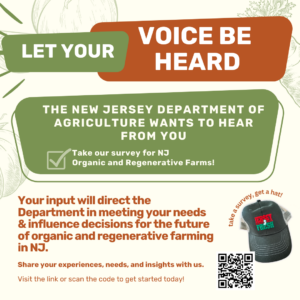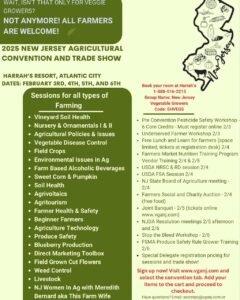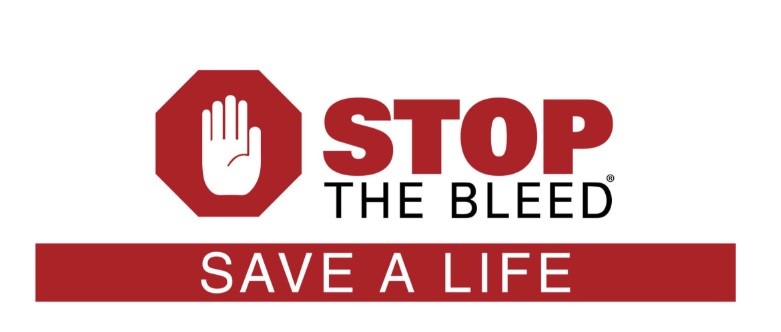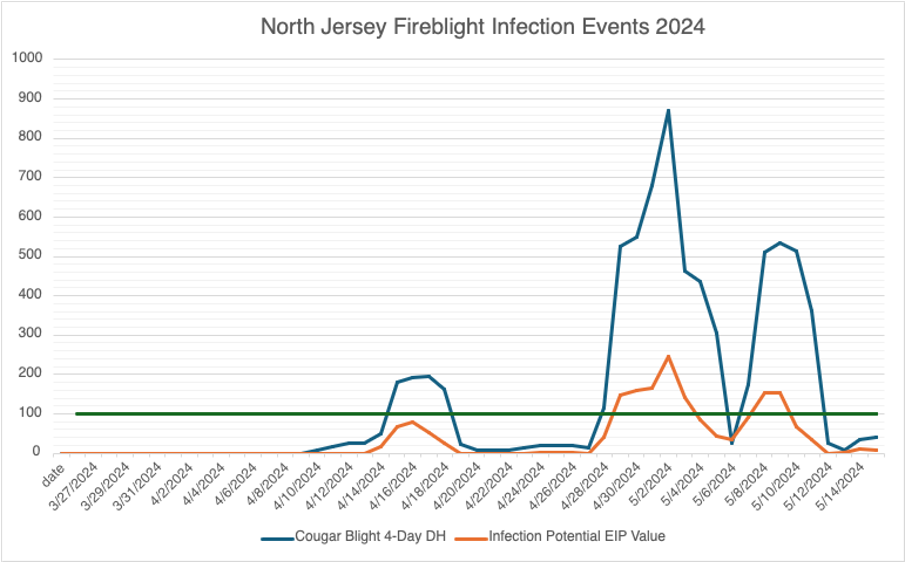 The New Jersey State Organic and Regenerative Farming Board, in collaboration with Rutgers Cooperative Extension, is conducting an anonymous online survey to better understand organic and/or regenerative farmers production practices, current resources used, and needs. Fill Out the survey here: https://go.rutgers.edu/z23g6ei7
The New Jersey State Organic and Regenerative Farming Board, in collaboration with Rutgers Cooperative Extension, is conducting an anonymous online survey to better understand organic and/or regenerative farmers production practices, current resources used, and needs. Fill Out the survey here: https://go.rutgers.edu/z23g6ei7
Who can take the survey: Farm business owners, prospective farmers, agricultural service providers, farm employees are invited to participate in this survey.
What will be done with the survey results: This information will be used to justify program creation, budget requests, and resources developed.
Survey Incentives: Respondents are eligible to receive a Jersey Fresh baseball cap, courtesy of the NJ Department of Ag. Show a screenshot confirmation of survey completion to a ORF board member to receive your cap. Caps will be given out in person at the NOFA-NJ conference on 1/25 and the NJ Ag Convention on Feb 4-6
Survey Link: https://go.rutgers.edu/z23g6ei7

 Uncontrolled bleeding after injury is a primary
Uncontrolled bleeding after injury is a primary 



